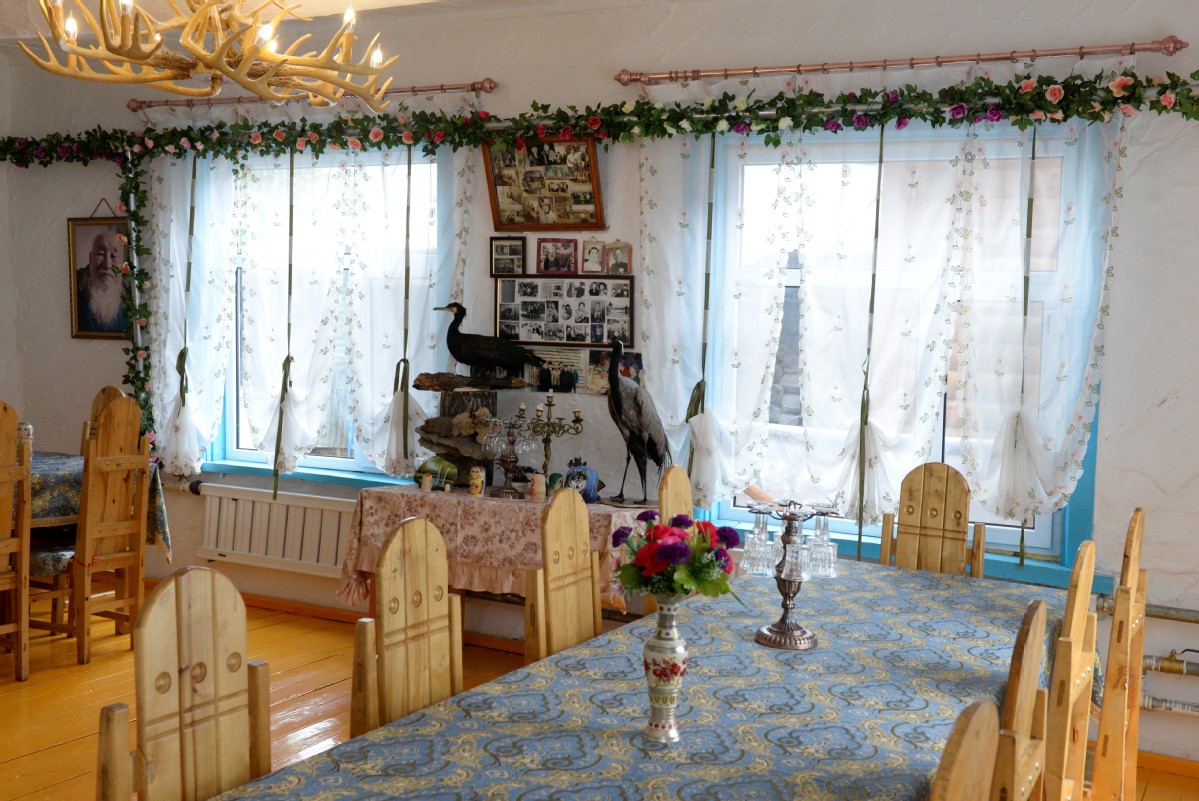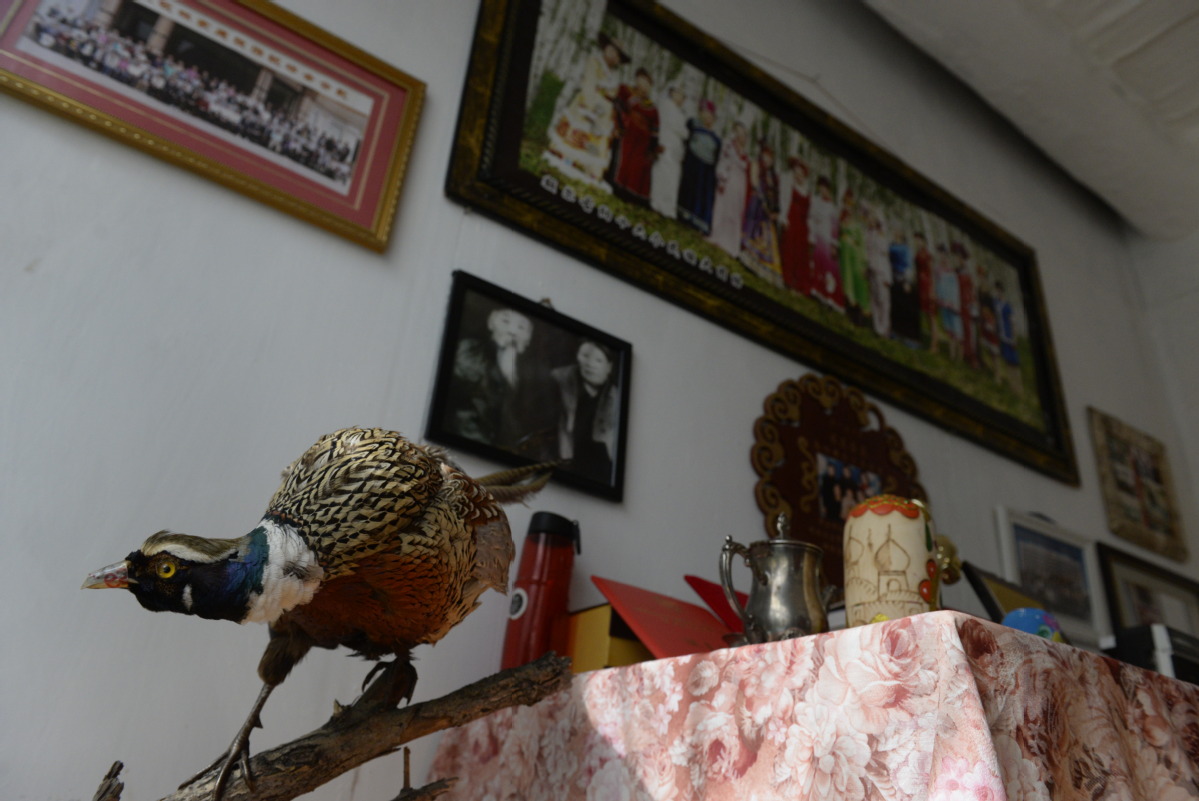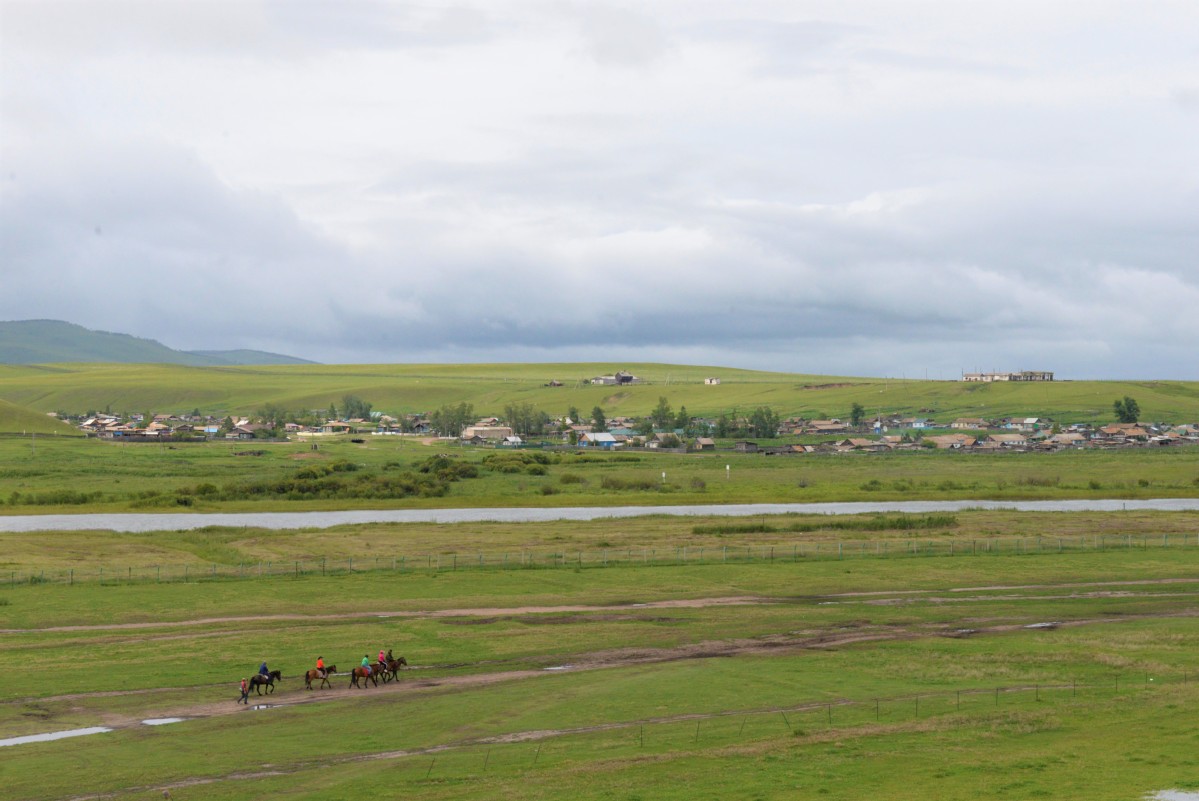
The traditional Russian-style interior of Qu's family hotel in Enhe, at Ergune, Inner Mongolia autonomous region, on Aug 4, 2020. [Photo by Zhao Shiyue/chinadaily.com.cn]
Enhe, a nationality township that borders Russia for 75 kilometers at Ergune, Inner Mongolia autonomous region, has seen its traditional homestay business flourish for nearly 15 years, offering local residents of the Russian minority group a way to prosper.
Qu Dexin, 70, and his son Qu Bo have been managing the Vasily Family Hotel since 2006, with 32 guest rooms and a total construction area of over 2,000 square meters.

Qu Bo introduces his family members and relatives living in Russia at his traditional Russian-style family hotel in Enhe, at Ergune, Inner Mongolia autonomous region, on Aug 4, 2020. [Photo by Zhao Shiyue/chinadaily.com.cn]
Around 100 years ago, Qu Dexin's grandfather from Hebei province traveled to the border city of Manzhouli, and then moved to Russia in seek of better work opportunities. After getting married to a Russian woman, they moved back to China and settled down in Enhe, a border town in North China.
Over 1,000 locals, like Qu, have similar family stories as Chinese-Russian descendants, and live typical Siberian lifestyles. To take advantage of the special ethnic culture, the Enhe government encouraged those with Russian heritage to develop tourism starting around 2006.

A matryoshka nesting doll at Qu's traditional Russian-style family hotel in Enhe, at Ergune, Inner Mongolia autonomous region, on Aug 4, 2020. [Photo by Zhao Shiyue/chinadaily.com.cn]
Up to now, more than 80 percent of the locals in Enhe are involved in the homestay business, with over 100 hotels in operation. "My family's income witnessed a significant increase in recent years, earning 400,000 to 500,000 yuan annually. Small hotel managers can also earn about 100,000 yuan on average," said Qu Bo.
Although the COVID-19 outbreak has dealt a blow to Enhe's tourism industry, Qu Bo sought to sell local produce, such as Russian black breads and blueberry jam via e-commerce platforms. As the epidemic comes under controlled and national economy rebounds, he still has a positive outlook for business in the following year.

The traditional Russian-style wooden house with decorations hanging on the wall at Qu's family hotel in Enhe, at Ergune, Inner Mongolia autonomous region, on Aug 4, 2020. [Photo by Zhao Shiyue/chinadaily.com.cn]

The unique decorations in Qu's traditional Russian-style family hotel in Enhe, at Ergune, Inner Mongolia autonomous region, on Aug 4, 2020. [Photo by Zhao Shiyue/chinadaily.com.cn]

A two-bed guest room at Qu's traditional Russian-style family hotel in Enhe, at Ergune, Inner Mongolia autonomous region, on Aug 4, 2020. [Photo by Zhao Shiyue/chinadaily.com.cn]

Qu Bo's father-in-law works in the fields at Qu's traditional Russian-style family hotel in Enhe, at Ergune, Inner Mongolia autonomous region, on Aug 4, 2020. [Photo by Zhao Shiyue/chinadaily.com.cn]

A family hotel employee picks homegrown vegetables to make dishes for tourists at Qu's traditional Russian-style family hotel in Enhe, at Ergune, Inner Mongolia autonomous region, on Aug 4, 2020. [Photo by Zhao Shiyue/chinadaily.com.cn]

Tourists ride horses along the China-Russia border in Shiwei, a border city in Ergune, Inner Mongolia autonomous region, on Aug 4, 2020. [Photo by Zhao Shiyue/chinadaily.com.cn]

Matryoshka nesting dolls for sale in a store in Shiwei, a border city in Ergune, Inner Mongolia autonomous region, on Aug 4, 2020. [Photo by Zhao Shiyue/chinadaily.com.cn]











